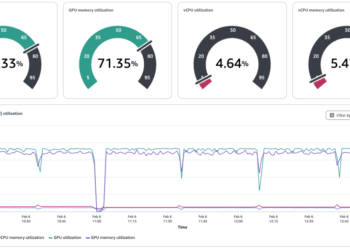As the usage of synthetic intelligence grows, academics are attempting to guard the integrity of their academic practices and programs. Once we see what AI can do within the fingers of our college students, it’s exhausting to remain impartial about how and if to make use of it.
After all, we fear about dishonest; AI can be utilized to put in writing essays and resolve math issues.
However we even have deeper considerations concerning studying. When our college students use AI, they is probably not participating as deeply with our assignments and coursework.
They’ve found methods AI can be utilized to create essay outlines and assist with challenge group and different such duties which might be key parts of the educational course of.
A few of this could possibly be good. AI is a superb software for getting began or unstuck. AI places collectively outdated concepts in new methods and might do that at scale: It would make creativity simpler for everybody.
However this very ease has academics questioning how we will maintain our college students motivated to do the exhausting work when there are such a lot of new shortcuts. Studying objectives, curriculums, programs and the way in which we grade assignments will all have to be reevaluated.
Associated: Occupied with improvements within the discipline of upper schooling? Subscribe to our free biweekly Larger Schooling publication.
The brand new realities of labor additionally have to be thought-about. A shift in employers’ job postings rewards these with AI expertise. Many firms report already adopting generative AI instruments or anticipate incorporating them into their workflow within the close to future.
A core pressure has emerged: Many academics wish to maintain AI out of our school rooms, but in addition know that future workplaces could demand AI literacy.
What we name dishonest, enterprise might see as effectivity and progress.
The complexities, alternatives and choices that lie between banning AI and instructing AI are important.
It’s more and more probably that utilizing AI will emerge as a necessary talent for college students, no matter their profession ambitions, and that motion is required of academic establishments consequently.
Integrating AI into the curriculum would require change. The perfect start line is a greater understanding of what AI literacy appears to be like like in our present panorama.
In our new guide, we make it clear that the specifics of AI literacy will range considerably from one topic to the subsequent, however there are some AI capacities that everybody will now want.
Earlier than even writing a immediate, the AI person ought to develop an understanding of the next:
- the function of human / AI collaborations
- learn how to navigate the moral implications of utilizing AI for a given objective
- which AI software to make use of (when and why)
- learn how to use their chosen AI software totally and efficiently
- the constraints of generative AI programs and learn how to work round them
- immediate engineering and all of its nuances
This data will assist our college students write profitable prompts, however extra expertise and AI literacy will probably be required as soon as AI returns a response. These embody the skills to:
- evaluation and consider AI-produced content material, together with learn how to decide its accuracy and acknowledge bias
- edit AI content material for its meant viewers and objective
- observe up with AI to refine the output
- take accountability for the standard of the ultimate work
The event of AI literacy mirrors the event of different key expertise, akin to crucial pondering. Educating AI literacy begins by instructing the capacities above, in addition to others particular to your individual topic.
Whereas the inclination could also be to start out instructing AI literacy by opening a browser, school ought to start by offering an moral and environmental context concerning the usage of AI and the obligations every of us has when working with AI.
Amazon Net Providers not too long ago surveyed employers from all enterprise sectors about what expertise workers want to make use of AI properly. In ranked order, their solutions included the next:
- crucial pondering and drawback fixing
- inventive pondering and design competence
- technical proficiency
- ethics and danger administration
- communication
- math
- teamwork
- administration
- writing
Larger schooling is sort of adept at instructing such expertise, and plenty of of these famous are among the many American Affiliation of Schools and Universities’ (AAC&U) record of “important studying outcomes” for larger schooling.
Associated: TEACHER VOICE: My college students are afraid of AI
College might want to enhance their very own AI literacy and discover essentially the most superior generative AI instruments (at present ChatGPT 4o, Gemini 1.5 and Claude 3.5). A great way to start is to ask AI to carry out assignments and tasks that you simply usually ask your college students to finish — after which attempt to enhance the AI’s response.
Understanding what AI can and can’t do properly inside the context of your course will probably be key as you ponder revising your assignments and instructing.
College must also discover out if their faculty has an advisory board comprised of previous college students and/or employers. Attain out to them for firsthand perception on how AI is shifting the panorama — and maintain that dialog going over time. That data will probably be important as you concentrate on AI literacy inside your topics and programs.
These actions will finally place you to have the ability to navigate the complexities and choices that lie between ban and train.
C. Edward Watson is vp for digital innovation with the American Affiliation of Schools and Universities (AAC&U). José Antonio Bowen is a former president of Goucher Faculty and co-author with Watson of “Educating with AI: A Sensible Information to a New Period of Human Studying.”
This story about AI literacy was produced by The Hechinger Report, a nonprofit, impartial information group targeted on inequality and innovation in schooling. Join our Larger Schooling publication.




